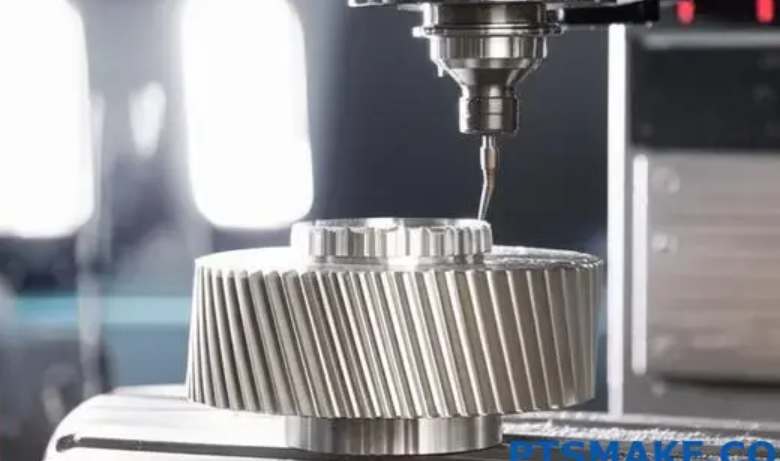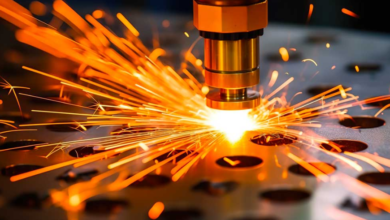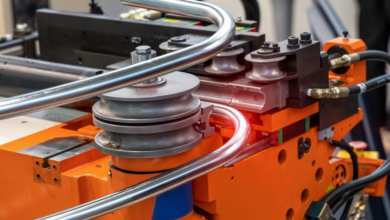Advancing Precision with Aluminium CNC Machining

Introduction to Aluminium CNC Machining
Aluminium cnc machining has become a cornerstone of modern industrial manufacturing. It combines the versatility and lightweight nature of aluminium with the precision of CNC (Computer Numerical Control) technology. These components are highly valued for their accuracy, reliability, and ability to meet complex design requirements in a variety of industries.
CNC machining allows manufacturers to produce components with tight tolerances and complex geometries, which is essential for sectors such as aerospace, automotive, electronics, and medical technology. With automated processes and consistent repeatability, aluminium cnc machining ensures high-quality output at both small and large production scales.
Advantages of Aluminium CNC Machining
Lightweight and Strong
One of the most important advantages of aluminium cnc machining is the material’s low density combined with its structural strength. This allows manufacturers to produce components that reduce overall system weight without sacrificing durability. Applications in aviation and automotive engineering especially benefit from lighter components, which can improve fuel efficiency and overall performance.
High Precision and Consistency
CNC machining provides a level of precision that manual methods cannot achieve. Aluminium components can be produced to exact specifications, ensuring seamless integration and consistent performance. The repeatability of CNC machining also allows large-scale production with minimal deviations, guaranteeing uniformity across batches.
Corrosion Resistance and Longevity
Aluminium naturally resists corrosion, making it ideal for applications exposed to moisture, chemicals, or extreme temperatures. aluminium cnc machining produces components that maintain their functionality and appearance over time, reducing maintenance needs and extending operational life.
Thermal and Electrical Conductivity
Aluminium’s excellent thermal and electrical conductivity makes it suitable for heat sinks, housings for electronics, and other applications that require efficient energy transfer. CNC machining ensures that these parts are accurately shaped to optimize performance while maintaining tight tolerances.
See also: How Smart Home Technology Is Redefining Interior Design
Industrial Applications
Aerospace Applications
Aluminium cnc machining is widely used in aerospace for brackets, structural supports, housings, and engine components. The lightweight nature of aluminium reduces fuel consumption, while the precision offered by CNC machining ensures components meet strict aerospace standards.
Automotive Industry
In the automotive sector, aluminium cnc machining provides engine components, suspension elements, and structural parts that reduce vehicle weight and enhance performance. Precise CNC manufacturing ensures components fit perfectly and operate reliably, contributing to vehicle safety and efficiency.
Medical Devices
Medical applications demand high precision and reliability. Aluminium cnc machining is used for surgical instruments, medical device housings, and diagnostic equipment. CNC machining allows manufacturers to achieve the tight tolerances required for medical safety and functionality.
Electronics and Consumer Products
Aluminium’s thermal and electrical properties make it ideal for housings, frames, and heat sinks in electronics and consumer devices. CNC machining enables the production of complex shapes that improve cooling, durability, and aesthetic appeal while maintaining strict dimensional accuracy.
Manufacturing Process
Selection of Aluminium Alloy
Choosing the right aluminium alloy is critical to performance. Alloys such as 6061, 7075, and 2024 are commonly used in cnc machining, each offering a balance of strength, corrosion resistance, and machinability. The selection depends on the component’s intended application and operating environment.
CNC Machining Techniques
Several CNC techniques are applied in producing aluminium components:
- Milling: Creates flat surfaces, slots, and complex geometries.
- Turning: Produces cylindrical or rotationally symmetric parts.
- Drilling: Ensures precise holes for assembly or functional purposes.
- Finishing: Processes like grinding, polishing, and deburring enhance surface quality and dimensional accuracy.
Computer control allows exact execution of designs and consistent quality across all parts.
Quality Assurance
Quality control is essential in aluminium cnc machining. Measurements using coordinate measuring machines (CMMs), calipers, and micrometers ensure dimensions, tolerances, and finishes meet the required specifications. Rigorous inspection guarantees reliability and performance of the final components.
Design Considerations
Wall Thickness and Strength
Designing components with appropriate wall thickness ensures sufficient strength while minimizing weight. Correct design prevents deformation and ensures long-term durability.
Tolerance and Fit
Maintaining precise tolerances is crucial for parts to fit accurately and function properly. CNC machining provides the precision required for seamless assembly and reliable operation.
Surface Finish
The quality of the surface finish affects both performance and aesthetics. Smooth finishes reduce friction in mechanical parts and improve the overall appearance of consumer-facing products.
Complexity vs. Cost
CNC machining allows for complex geometries, but overly intricate designs can increase production time and cost. A balance between complexity and manufacturability ensures high-quality parts while maintaining cost-effectiveness.
Advantages Compared to Other Materials
Compared to steel and plastic, aluminium cnc machining offers a combination of light weight, corrosion resistance, and sufficient strength. Steel is stronger but heavier and more challenging to machine, while plastic is lightweight but lacks durability and thermal resistance. Aluminium provides a versatile solution suitable for many industries and applications.
Future Trends in Aluminium CNC Machining
Automation and Smart Manufacturing
The integration of automation, artificial intelligence, and IoT in CNC machining is improving production efficiency, reducing errors, and ensuring quality. Manufacturers can produce aluminium components faster and with lower costs.
Development of Advanced Alloys
New aluminium alloys are being developed with improved strength, thermal resistance, and corrosion resistance. These materials expand the possibilities for cnc machining in demanding industrial applications.
Sustainability
Sustainable manufacturing is gaining importance. Recycling aluminium and implementing energy-efficient machining processes reduce environmental impact while maintaining high-quality output.
Conclusion
Aluminium cnc machining plays a critical role in modern manufacturing, offering precision, durability, and versatility. Industries including aerospace, automotive, medical, and electronics rely on aluminium components for high-performance and reliable solutions. With continuous advancements in CNC technology, material innovation, and sustainable practices, aluminium cnc machining will continue to be essential for precision engineering in the future.




